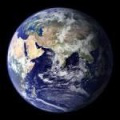Vatican envoy addresses UN on sustainable environment

His Excellency Archbishop Silvano M Tomasi Permanent Observer of the Holy See to the United Nations and Other International Organizations in Geneva gave a speech at the 28th Session of the Human Rights Council today, on Item 3, "Human rights obligations relating to the enjoyment of a safe, clean, healthy and sustainable environment"
The text of Archbishop Tomasi's address follows:
Mr President,
As the Holy See stated during the UN Climate Summit, the enjoyment of a sustainable environment is an issue of justice, respect and equity. Environmental degradation can and does adversely affect the "enjoyment of a broad range of human rights."[1] The Human Rights Council itself has stated, "environmental damage can have negative implications, both direct and indirect, for the effective enjoyment of human rights."[2]
These situations must be approached from the perspective of the principle common and distributive justice. Contributive justice in the sense that all shall contribute according to their financial and technological possibilities; distributive justice, in order to provide to each country the know-how as well as the possibility to develop, to produce goods and to deliver services.
Reparative justice implies that those who have benefited more from the use of natural resources, and having thus damaged the environment more, have a special duty to work for its restoration and care. Human rights obligations and commitments have the potential to inform and strengthen international, regional and national policymaking in the area of environmental protection and urges States "to take human rights into consideration when developing their environmental policies" (resolution 16/11).
This Council, as well as the parties to the United Natio
ns Framework Convention on Climate Change, has stated that States should, in all climate change-related actions, fully respect human rights[3]. The human rights obligations relating to the environment also include substantive obligations to adopt legal and institutional frameworks that protect against environmental damage that would interfere with the enjoyment of human rights, including harm caused by private actors.
As my Delegation has already stated in the intervention on Transnational Corporations, we reiterate our call to protect human rights from environmental harm. States have to strike a balance between environmental protection and other legitimate societal interests. But the balance should be reasonable and not result in unjustified and foreseeable infringements of human rights. In this regard, the Holy See would like to express its appreciation for the good practice of preparing "sustainability reports", which describe the economic, environmental and social impacts caused by companies' everyday activities.
The comprehensive guidelines prepared by the Global Reporting Initiative provide a framework for measuring and reporting sustainability-related impact and performance, inclusive of indicators relating to the protection of human rights and the environment[4]. It is a matter of justice to help poor and vulnerable people who suffer from causes largely not of their making and beyond their control. One concrete step would be to make available to them the best in adaptation and mitigation technology.
Now, all eyes are focussed on the Twenty-first Conference of Parties to the UNFCCC and the Eleventh Meeting of the Parties to the Kyoto Protocol, which will take place in Paris in December 2015. There, the poor and the rich will be winners if we could reach an agreement on a post-2020 international regime, in which all the nations of the world, including the biggest emitters of greenhouse gases, bind themselves to a universal agreement on climate.
In conclusion, Mr President, As Pope Francis stated in different circumstances: "Even if 'nature is at our disposition', all too often we do not 'respect it or consider it a gracious gift which we must care for and set at the service of our brothers and sisters, including future generations'. Here too what is crucial is responsibility on the part of all in pursuing, in a spirit of fraternity, policies respectful of this earth which is our common home."
The responsibility to protect the environment, whether as a developed or a developing country, rests on the shoulders of us all. Taking into consideration the good practices highlighted by the Special Rapporteur, we should not avoid the urgent work that remains to be done for ensuring that future generations might find a world that will allow them to lead prosperous lives.
[1]Cf. doc. A/HRC/22/43, para. 34. [2] Cf. Resolution 16/11. [3] Resolution 18/22; and FCCC/CP/2010/7/Add.1, decision 1/CP.16 [4] Report of the Independent Expert on the issue of human rights obligations relating to the enjoyment of a safe, clean, healthy and sustainable environment, document A/HRC/28/61, para 81.


















